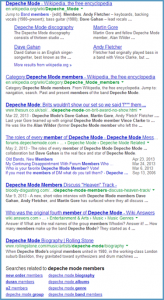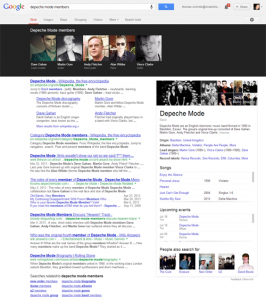Google Hummingbird : NLP, Knowledge Graph and Page Rank Today
The advent of Google’s Page Rank Algorithm created a large industry in Search Engine Optimization, a fancy name for a methodology of strategies that increase visibility of a website in any search engine’s organic results. But the “Search” landscape is making gigantic leaps. Google keeps renewing its search algorithms, to give users a better search experience and at the same time to filter out spam. Google steers a major chunk of the Internet’s traffic, and any changes it makes can have sweeping ramifications. Google’s most recent update to its search algorithm, “Hummingbird” is one such jump into the future with resonating impacts. Here is an infographic I found online, that introduces the idea:
Hummingbird relies not only Page Rank but also on over 200 other ranking algorithms and techniques, which include algorithms that deal with semantic analysis and natural language processing on search queries. Google’s search engine now understands the contexts of search queries rather than mere words. This helps Google tackle search queries that are in the form of “ongoing conversations” , as people these days like typing in long queries or use their smart devices to search using Google’s voice recognition technology. This search is smarter and tailors to the user’s interests and location with the help of a knowledge graph.
Not too long ago (2011/2012) Google search of say the search query “Depeche Mode” looked like this:
 in comparison to results today –>
in comparison to results today –>
The Knowledge Graph, shows Image Carousels with search results of related topics, shows related searches by other people , shows relevant location based results and also compares attributes.
Google’s Hummingbird update focuses a lot on local information relevant to the user. Thus, small businesses can benefit from this if they leverage their geographic location and develop content accordingly. Niche markets could also benefit, because search queries now can be more specific.
With the help of some advanced artificial intelligence and semantic analysis algorithms, Google is increasing the time spent on websites found in search results as well as revenue. Hummingbird also filters out the spam by eliminating guess work and interpreting queries with associations, at the same time making some pointless results based on SEO tricks expensive to pursue. Thus, Google has revamped from keyword search to user intent search. This also means a complete change to the SEO techniques currently used. Now the websites have to be more focused on relevant content than ever before, because the search has become so specific. It also means companies(including other search engines) will benefit from expanding to smartphones and other smart devices, that use voice recognition queries. It is also a challenge to keep updating it according to Google’s transient search landscape.
Here’s another infographic that helps understand impacts on SEO better:
Links — http://www.wordstream.com/blog/ws/2014/06/23/google-hummingbird#.
http://moz.com/blog/local-hummingbird-results


